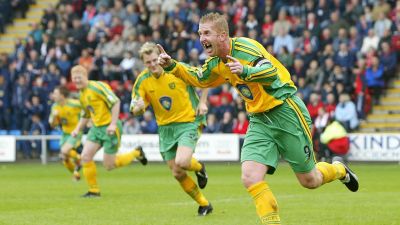Footballers' brains more likely to decline when they reach their 60s, study finds

Professional footballers are more likely to have worse brain health compared to the general population by the time they reach the age of 65, a study has found.
Researchers from the University of East Anglia in Norwich monitored a group of more than 75 former elite players, as well as some active non-footballers.
Participants, including former Norwich City stars Iwan Roberts and Jeremy Goss, and ex-Crystal Palace striker Mark Bright, carried out cognitive function tests and their results were compared with the non-playing group.
The findings showed that the footballers in the 40-50 age group performed better in the assessments than the other group, but the opposite was true for the older participants.
"We know that regular exercise is really good for brain health, and our research confirms that professional footballers have improved brain health in their 40s compared with non-footballers," Lead researcher Dr Michael Grey said.
“But when they get to 65 – that’s when things are starting to go wrong. The over 65s performed worse when assessed for things like reaction time, executive function, and spatial navigation. These are early warning signs for deteriorating brain health.
“This shows us that the exercise associated with playing football is good for the brain, but the negative effects of contact sport do begin to appear later in life."
The study, called Screening Cognitive Outcomes after Repetitive Head Impact Exposure - or SCORES - was carried out by the university to look at the cognitive health of athletes as they age.
Dr Grey said that research team were hoping to identify "early signs of cognitive dysfunction" before any conditions like dementia develop, and the study would "highlight the need to investigate ways to limit damage to the brain as people play sport".
The team are now aiming to continue monitoring the participants over the coming years.
"We will hopefully follow our cohort of former footballers for the rest of their lives," Dr Grey said.
"This will give us a really clear picture of the potential damage caused by heading the ball."
Want a quick and expert briefing on the biggest news stories? Listen to our latest podcasts to find out What You Need To Know